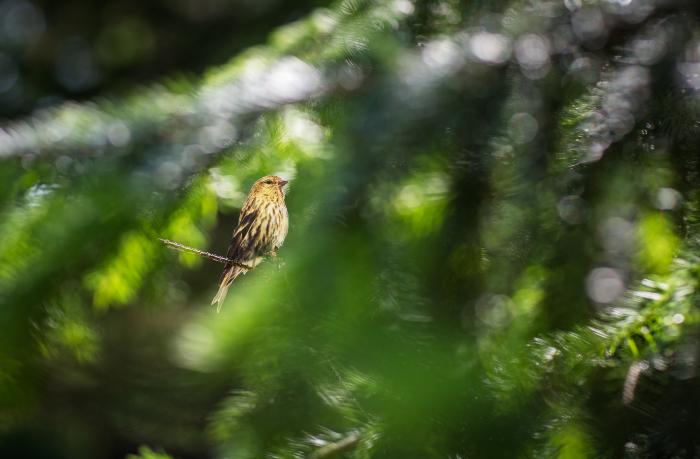
Divergence of Birds
Photographs by Carolyn Monastra
Online Exclusive Exhibition
My conceptual environmental project, Divergence of Birds, takes inspiration from two texts: the National Audubon Society’s “Birds and Climate Change Report” which projects that, by 2080, climate change will affect the range of habitat of over half of North American birds; and Philip K. Dick’s dystopian novel, “Do Androids Dream of Electric Sheep?”, where electric versions of once-commonplace animals are so realistic that they even fool veterinarians. Divergence of Birds addresses the prospect that, one day, only simulacra of climate-impacted animals will be left.
Combining the documentary style of my previous climate project, The Witness Tree, with my earlier narrative fictional approach, I photograph paper cutouts (from appropriated online images) of climate-threatened birds. I place the cutouts within the birds’ current habitats so that they look real, but upon inspection, reveal themselves to be photos within photos—the gaze within the gaze upon nature—as actual birds recede into marginal zones of survival.
The images are meant to disrupt the casual gaze, disarming the expectations of nature photography, leaving viewers disturbed and curious. As we approach the 50th anniversary of Earth Day on April 22, 2020, the world finds itself disturbed and disarmed by our current situation with COVID-19. As birds are taking flight to migrate to their summer homes, we must “shelter-in-place,” unable to travel to our schools, jobs, loved ones or, for some, even the corner store.
One consequence of less human activity is that pollution is decreasing and, if you believe some of the viral social media, wildlife is reclaiming land and waters that were once naturally theirs. The truth is that many of these animals have been there all along—but we are now slowing down enough to notice them.
To find out how you can join the world’s largest environmental movement, go to earthday.org. To learn about which bird species are being threatened by climate change in your region, visit audubon.org. And, from the Cornell Lab of Ornithology, check out these ten actions you can take to protect birds, and read up on the ways birds can provide happiness and hope to us during these next weeks at home.





